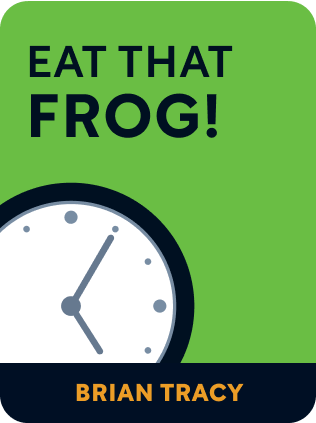

This article is an excerpt from the Shortform book guide to "Eat That Frog!" by Brian Tracy. Shortform has the world's best summaries and analyses of books you should be reading.
Like this article? Sign up for a free trial here .
Are you in a rut and want to advance your career? How can you develop your skills to gain confidence and stop feeling inadequate?
Developing your skills has so many benefits including increased motivation, better productivity, and chances for advancement at work. There are steps you can be taking daily to do this.
Keep reading for advice on how to develop your skills.
Develop Your Skills
Developing your skills is one of the most important ways to increase your productivity and advance your career. Determine what you need to learn in order to do your job better and then learn it.
Developing your skills has multiple benefits:
- It gives you confidence and motivation to plunge into challenging tasks without hesitation and get them done.
- It enables you to avoid procrastination. A major reason for procrastinating is feeling inadequate in a key area. Weakness in one area can be enough to keep you from starting a task.
- Developing your skills is a time saver. The better you are at something, the faster you are at getting it done. One additional skill or piece of information can make a big difference in how well you can do something
- It will advance your career. To keep your job and to advance, you need to continually develop your skills in your key result areas. You can always expand your knowledge, and no matter how much you know today, your skills and knowledge are in the process of becoming obsolete.
Identify your most important tasks and capabilities, then draw up a plan to continually develop your skills in these areas. You can learn anything—from typing and computer proficiency to specialized knowledge in your field. Learning should be a priority. Basketball coach Pat Riley said, “Anytime you stop striving to get better, you’re bound to get worse.”
You can take courses and workshops, or earn certifications and advanced degrees in your field. But there are also several ways to make learning part of your routine:
1) Read about your field or industry daily. Also, read books and articles about personal development and productivity.
2) Take courses and seminars addressing skills you need. Attend conferences and business meetings of your profession or occupation.
3) Listen to audio programs in your car. The average driver spends 500 to 1,000 hours a year on the road. Use this time to learn.
You build mental muscle or brain power by using your brain—so the more you learn, the more you expand your capacity to learn. The only limits to how far you can go are the limits of your imagination.
Identify Constraints
In every effort, there’s always a major constraint or limitation that hinders your progress on completing your task or achieving your goal.
It can be internal or external. It can even be personal—everyone has limiting factors.
There are always multiple factors creating friction, but one is greater than the others.
It’s critical to identify constraints that are holding you, your project, or the company back. Removing it will make a bigger difference in how quickly you achieve your goal than almost anything else you do.
Potential bottlenecks can be:
1) External: Outside factors affecting your ability to accomplish your goal include competitors, the market, customers, and the government. For instance, customers may have a false perception of your product that’s hindering sales. An external factor will turn out to be your biggest constraint only about 20% of the time.
2) Internal: 80% of the time, your biggest constraint will be internal. It may be a person whose help you need or who has to sign off on an aspect of the process. It could be a key resource that’s lacking or an organizational weakness, such as an inadequate marketing or sales effort. Other potential internal limitations are cash flow and operational problems.
3) Personal: Everyone has limitations affecting the pursuit of their tasks and goals, but one factor will predominate. To succeed, you need to honestly examine yourself by asking what personal quality or knowledge or performance gap is holding you back; what keeps you from accomplishing important tasks?
Your primary constraint may not be obvious at first glance. Make a list of every step in the process and every activity, then analyze them to determine what’s holding you back.
It’s important to accurately identify constraints, so that you choose the right strategy to eliminate it and restore progress toward your goal. Focusing on a lesser factor instead of the one that’s hindering you the most will be a waste of time and a diversion.
For instance, one company attributed lagging sales to its sales staff and management, and the company restructured the whole department in response. But this tactic failed to improve sales because the major constraint holding back sales was incorrect pricing, not the sales staff. Once they focused on the right thing, sales took off again.
Once you fix the biggest constraint, you may find another that’s now the biggest. Identify and remove each as you find it. Removing the most consequential bottlenecks will motivate and energize you to push your task to completion.
Removing a limiting factor may be your most important task at the moment.

———End of Preview———
Like what you just read? Read the rest of the world's best book summary and analysis of Brian Tracy's "Eat That Frog!" at Shortform .
Here's what you'll find in our full Eat That Frog! summary :
- What it means to eat a frog
- How your daily distractions get in the way of doing important work first
- How to make a habit of doing the most important thing first, every day






